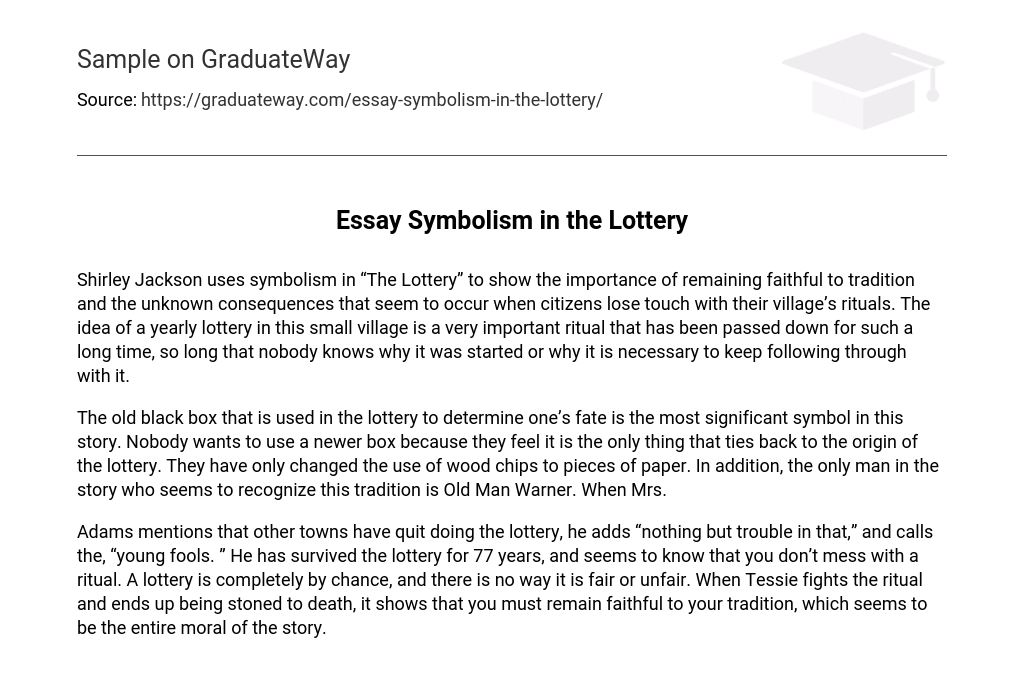Shirley Jackson uses symbolism in “The Lottery” to show the importance of remaining faithful to tradition and the unknown consequences that seem to occur when citizens lose touch with their village’s rituals. The idea of a yearly lottery in this small village is a very important ritual that has been passed down for such a long time, so long that nobody knows why it was started or why it is necessary to keep following through with it.
The old black box that is used in the lottery to determine one’s fate is the most significant symbol in this story. Nobody wants to use a newer box because they feel it is the only thing that ties back to the origin of the lottery. They have only changed the use of wood chips to pieces of paper. In addition, the only man in the story who seems to recognize this tradition is Old Man Warner. When Mrs.
Adams mentions that other towns have quit doing the lottery, he adds “nothing but trouble in that,” and calls the, “young fools. ” He has survived the lottery for 77 years, and seems to know that you don’t mess with a ritual. A lottery is completely by chance, and there is no way it is fair or unfair. When Tessie fights the ritual and ends up being stoned to death, it shows that you must remain faithful to your tradition, which seems to be the entire moral of the story.





